WASH Rotary Action Group supports and ensures sustainable long-lasting clean water, sanitation, and hygiene programs to communities in need.
Our Annual Photo & Video Contest is Now Open
All entries must be submitted by April 30, 2025. Late submissions may not be considered.

WASH AMBASSADOR

WASH EDUCATION

JOIN WASH-RAG
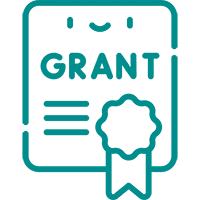
GRANT SUPPORT

WASH Project Center

UPCOMING EVENTS
My Pad, My Confidence
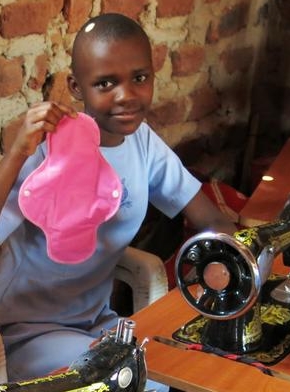 A chance meeting at the Singapore Convention has led to a program in five schools in Uganda that is not only empowering young women, but it is also providing them with essential menstrual hygiene products.
A chance meeting at the Singapore Convention has led to a program in five schools in Uganda that is not only empowering young women, but it is also providing them with essential menstrual hygiene products. We place a lot of emphasis on Global Grant projects, but this Club-to-Club project for under $5,000 is having a significant impact on young women in these communities.
What Nancy, California, and Doreen, Uganda, have accomplished in a short time is inspiring. Read what they have done and why Doreen says, "We are already seeing a significant transformation—these girls are now more likely to stay in school, no longer hindered by the lack of menstrual products."
.
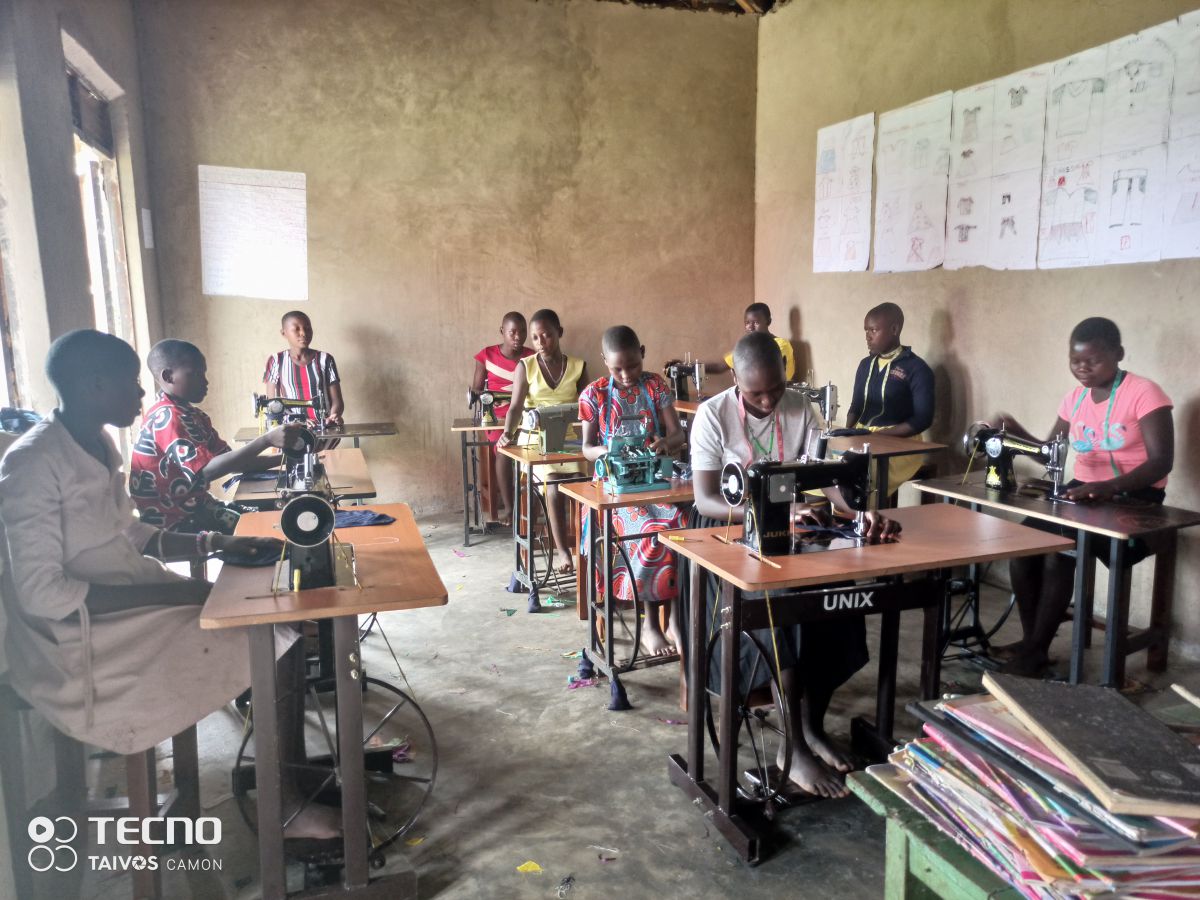
At the Rotary Convention in Singapore, Nancy met Doreen Tigah, of the Rotary Club of Mubende Metro station, Uganda. Nancy knew she had identified the next Club-to-Club project, when she learned that Doreen's biggest concern was helping young women manage their menstruation, which is a significant issue especially in rural areas. This issue was affecting school attendance, wellness, and the general well-being of these girls. Doreen wanted to establish sewing classes at primary schools in her district to create reusable menstrual pads.
Beyond improving their menstrual hygiene, this initiative supports young women by equipping them with income-generating skills that
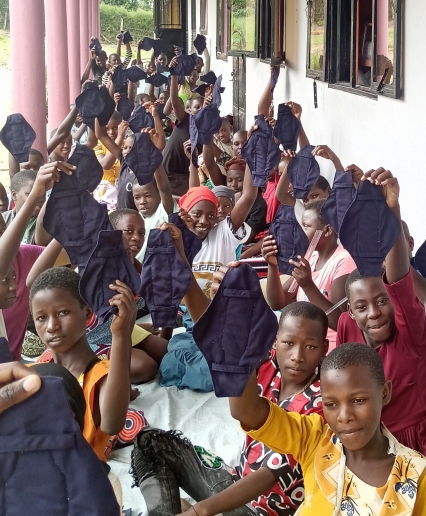 improve their livelihoods and foster community development. Additionally, it is an opportunity to encourage these young women to return to school, as many dropped out due to the lack of sanitary products. By providing both skills and mentorship, this project empowers them for a better future.
improve their livelihoods and foster community development. Additionally, it is an opportunity to encourage these young women to return to school, as many dropped out due to the lack of sanitary products. By providing both skills and mentorship, this project empowers them for a better future.The project involved selecting ten of the most vulnerable students from each school to participate in a six-month training program they call "My Pad, My Confidence". After completing the course, they train other students and young mothers, using the sewing machines provided at each school.
Doreen reports that, "It is truly inspiring to witness these girls learning the valuable skill of pad-making. They are eager to not only acquire this skill, but each obtains a personal set of reusable pads. Beyond that, they are gaining tailoring skills that will empower them in the long run."
Joint Newsletter with Menstrual Health and Hygiene

May 28 is Menstrual Hygiene Day ( www.menstrualhygieneday.org ). It is the tenth year of highlighting the importance of good menstrual hygiene management. This month seemed like a good time to team up with the Rotary Action Group for Menstrual Health and Hygiene ( www.ragmhh.org ).
End Period Poverty
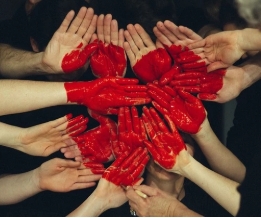
Imagine a world where no woman or girl is held back by her period. Unfortunately, this is far from reality for over 500 million women and girls globally who lack access to safe, affordable menstrual products. Period poverty is not just a health issue—it’s a barrier to education, economic opportunity, and dignity. End Period Injustice Now, is on a mission to change this by creating a sustainable, scalable blueprint that communities worldwide can adopt. Together, we can ensure that menstruation is no longer a source of inequality but a driver of empowerment.
.
by Caroline Teugels
Rotary has always been a force for good, with its 1.2 million members working tirelessly to address global challenges. Now, we’re calling on Rotarians to join the fight against period poverty. This movement began with Caroline Ostara Teugels, president of the Rotary E-Club Belgium 1 Passport, who envisioned a world where menstrual justice is a reality for all. Her passion sparked the interest of the Rotary Action Group Menstrual Health and Hygiene, where Caroline is now the Regional Director for Europe. Through collaboration, we’ve realized the power of sharing knowledge and building on each other’s successes. By creating a global database of impactful initiatives, we aim to inspire action, streamline efforts, and provide blueprints for communities to replicate successful projects.
Why Your Story Matters

Dear Rotarians, spread the word: Are you aware of a Rotary project anywhere in the world addressing period injustice or tackling period poverty? Your story could be the key to inspiring others and driving meaningful change. By contributing to our global database, you’ll help us share knowledge, build partnerships, and create a future where no one is held back by their period.
? Why Share Your Story?
-
Contribute to a global movement for change.
-
Help others replicate successful initiatives.
-
Be part of a future where no one is held back by their period.
The Urgency of Action
The statistics are staggering:
-
500 million women and girls globally lack access to facilities to manage their periods effectively.
-
In the UK, 137,700 girls missed school last year because they couldn’t afford sanitary products.
-
In the U.S., 1 in 4 students struggle to afford period products, impacting their education.
-
1.25 billion women and girls lack access to safe, private toilets, exacerbating menstrual health challenges.
How You Can Help
-
Create Awareness: Start conversations about period injustice. Invite the Rotary Action Group and End Period Injustice Now to speak at your events, share our work with your networks, and use your voice to amplify our message. Together, we can break the stigma surrounding menstruation.
-
Donate: Your contributions fuel our mission. Every donation helps us gather essential data, develop scalable solutions, and support educational outreach.
-
Grow the Network: Join forces with individuals, organizations, and communities fighting period injustice. By sharing knowledge and collaborating on solutions, we can create a global network that amplifies our collective efforts.

At End Period Injustice Now, we believe that periods should never be a barrier to progress. By focusing on education, economic empowerment, and environmental sustainability, we are building a world where menstrual justice is a reality for all. But we can’t do it alone. Rotarians, this is your call to action. Share your stories, spread the word, and join us in the fight against period injustice. Together, we can create a future where every woman and girl can manage her period with dignity and equality.
Visit www.endperiodinjusticenow.com today to learn more and contribute to this vital mission. Let’s make period poverty a thing of the past! Share your project with us.
G Stitches
 This initiative was aimed at making a difference in the lives of young people. It may have seemed like a dream at first, but today it has become a reality that will inspire even more significant aspirations.
This initiative was aimed at making a difference in the lives of young people. It may have seemed like a dream at first, but today it has become a reality that will inspire even more significant aspirations.While the gratitude expressed by the participants cannot be fully captured in words, it can be imagined through the response of one participant:
"I feel fully empowered by this program today and will always be grateful to the sponsors who have made a meaningful impact on my life."
.
by Dr Emily Nzeribe

Read about the success of this project, which was an initiative of the Rotary Action Group for Menstrual Health & Hygiene.
Objective: This Rotary initiative aims to provide sustainable access to reusable products by training women and girls in the production and sale of reusable menstrual products. The program focuses on equipping small-scale businesses, economically empowering young girls and women, reducing poverty, and protecting the environment.
Background: Period poverty is a significant concern in low-income countries like Nigeria, where the rate of inflation is constantly affecting the cost of everything. Most families cannot afford to support
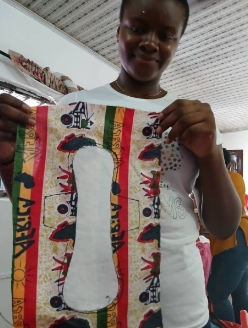 their female members with the financial resources to manage menstruation. Secondly, the recurrent use of disposable menstrual products continues to increase environmental pollution and contribute to climate change. The introduction of re-usable products has been identified as a solution to these challenges. Furthermore, training young girls/women in a country where the rate of unemployment is high will economically empower participants in this program and make the provision of the reusable product very sustainable.
their female members with the financial resources to manage menstruation. Secondly, the recurrent use of disposable menstrual products continues to increase environmental pollution and contribute to climate change. The introduction of re-usable products has been identified as a solution to these challenges. Furthermore, training young girls/women in a country where the rate of unemployment is high will economically empower participants in this program and make the provision of the reusable product very sustainable.Approach
-
Some mentors (skilled trainers) were assembled and briefed on this project's objectives and requirements.
-
During the one-day program with the mentors, the name "Rotarypreneur" was adopted to capture the spirit of Rotary in entrepreneurship.
-
Fabrics, industrial and ordinary sewing machines, and other tailoring materials were purchased.
-
Everything needed for the first and second batches of the program was purchased simultaneously to avoid the influence of
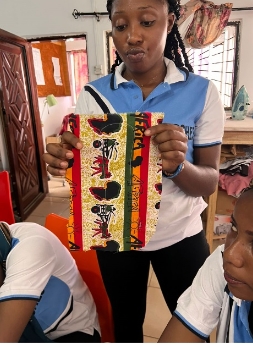 inflation in Nigeria.
inflation in Nigeria. -
Many applied, but 20 young girls/women were recruited for the program. In partnership with GWACHI (a nonprofit organization known for the promotion and production of reusable menstrual pads with the G-Stitches trademark, a space was provided for the Rotarypreneur project.
-
Participants report two times a week for training.
-
In one year, 10 participants have graduated from the program and are expected to continue to live up to the expectations of the objectives of this program.
-
According to one of them, “this program has empowered me to make a difference in my life and the lives of others.”
-
The second batch of ten participants has resumed with the second phase of the program. They have joyfully committed to the dream, and hopefully, they will be greatly empowered in the next few months.
In realizing the objectives of the Rotarypreneur, we met a few challenges.
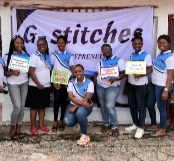
-
Two of the 10 initial participants could not continue to report for the program due to the cost of transportation to the program site. We are grateful to GWACHI for providing them with financial support to assist with their transportation.
-
In the middle of the program, we received about a thousand pieces of cut fabric for the menstrual pads from PDG Roy Jefferson of the Rotary District 5320, Carlifornia, USA. This was a highly appreciated gift, but it posed a financial challenge because it cost us about $400 to purchase the materials needed to finish the supplied fabric into reusable menstrual pads.
Reflection and Future Scope
-
It is hoped that Rotarypreneur continues with this project based on the joy and enthusiasm expressed by the participants and the impact they are making and will continue to make on society. To make it more sustainable, we hope to create another site in a rural area where some participants can easily go to the site without the need for transportation. It is also hoped that Rotarypreneur will partner with other organizations and individuals to continue this initiative.
-
In powering this Rotarypreneur, we firmly believe that the objectives of this project are being realized and will continue to be realized based on a few on-site visits where some of our participants are engaged in their small-scale businesses to advance the dream of this Rotarypreneur as a formidable program.
Thank you for donating to our project aimed at providing sustainable access to reusable products. This initiative focuses on training women and girls in the production and sale of reusable menstrual products, equipping small businesses, and economically empowering young girls and women. Our goal is to reduce poverty and protect the environment. This innovation has generated significant interest among young girls and underserved women. We hope that the benefits of this program will extend beyond just those who participated in the initiative.
Jobs, Education, & Health
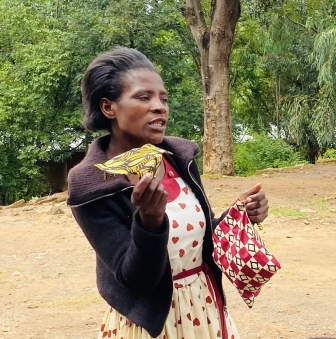 A community health centre in Malawi focuses on providing HIV testing and counselling. They found that when educating young girls about HIV, they also had an opportunity to teach them about menstrual hygiene.
A community health centre in Malawi focuses on providing HIV testing and counselling. They found that when educating young girls about HIV, they also had an opportunity to teach them about menstrual hygiene.
Read how a Rotary Club of Brussels Rotarian, has developed a project to train young women in how to make washable sanitary kits, which has benefited thousands of young women.
.
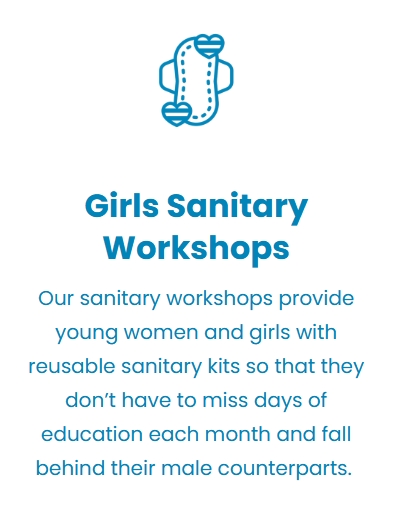
A few years ago, Sue Bird, a member of Rotary Club of Brussels, Rotary, founded a community health centre in Songani, southern Malawi.
One of the projects hosted by the Centre is the making of washable sanitary kits for young women who come to the Centre. This is essential work: young women are then able to continue their education instead of needing to take time off every month. They retain their dignity and are empowered by learning elementary textile skills.
Thousands of young women have benefited from this project, since it began 5 years ago.
If you would like to donate to this much-needed project, you can contact Sue Bird at suebird121059@gmail.com
Missing 1,000 days of school a month
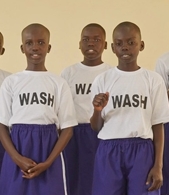 Young women at the Abukloi Secondary School, in Rumbek, South Sudan were missing an aggregate of 1,000 days of school per month. Currently, any school absenteeism is NOT due to lack of menstrual hygiene products.
Young women at the Abukloi Secondary School, in Rumbek, South Sudan were missing an aggregate of 1,000 days of school per month. Currently, any school absenteeism is NOT due to lack of menstrual hygiene products. This significant change in attendance was due to the introduction of a program to create reusable menstrual hygiene products and liquid soap production.
Read how Rotary members from the Rotary Club of Ithaca took this concept and introduced it to schools in Northern Uganda.
.
by Drew Noden
 Lack of infrastructure and awareness of essential WASH practices remains a major challenge in many parts of the world, with rural families and schools especially underserved. Over the past five years, Rotarian Gertrude Noden, of the Rotary Club of Ithaca, has introduced youth empowerment programs that emphasize WASH and gender equity into schools and community organizations in the Gulu District of northern Uganda.
Lack of infrastructure and awareness of essential WASH practices remains a major challenge in many parts of the world, with rural families and schools especially underserved. Over the past five years, Rotarian Gertrude Noden, of the Rotary Club of Ithaca, has introduced youth empowerment programs that emphasize WASH and gender equity into schools and community organizations in the Gulu District of northern Uganda.During the pandemic, Gertrude founded a nonprofit called Words Into Deeds. The first step was presenting a multi-day workshop for teachers and students at the UNIFAT Primary School located in Gulu. This included the goals of WASH and the Sustainable Development Goals, and strategies for introducing these to primary-level students.
Following this training, the teachers and students organized several on-campus projects, including production and distribution of liquid soap to families and local businesses and schools. As part of the educational outreach mission, students in grades 4 and 5 wrote and performed a video that teaches the importance of washing hands and mangos, which are often picked from the ground.
In many parts of the world, women miss several days of school or work each month due to a lack of safe, affordable menstrual hygiene products. Working with community leaders in Gulu, a tailor-training facility was opened in 2023 that now has graduated forty women, each of whom received six-months of training. Many of these women were victims of molestation during the pandemic and, with babies, were unable to complete secondary level education or gain employment. Thus far these young women have produced and distributed over 2,500 reusable menstrual hygiene kits to schools and villages, each of which is accompanied with a bottle of liquid soap made by the UNIFAT children.
Last year, Words Into Deeds launched liquid soap and reusable hygenic pad-making projects at eight rural schools in the Gulu District. Collectively, these enroll 2,800 students. This required having several preparatory meetings with the teachers and students at each school as well as with village leaders. Prior to launching, teachers attended workshops in Gulu City at which soap-making and kit-making demonstrations were led by the UNIFAT students and the tailor-trainees. Each school then received materials for making liquid soap and reusable pads, followed by visits by trainers, with the goal of becoming self-sustaining within a year.
These programs were generously supported in part by grants awarded by the Rotary Club of Ithaca and the Central New York Rotary District, augmented by donations from other district Rotary Clubs and community organizations. What began as a small, one-school initiative now reaches several thousand youths who learn the importance of WASH, promote gender equity, and serve their communities.
For more information, contact Drew Noden at DrewNoden@gmail.com
Break the Silence
 by Sharmila Gopalan, Chair and Founder, RAGMHH
by Sharmila Gopalan, Chair and Founder, RAGMHHFour years ago, the Rotary Action Group for Menstrual Health & Hygiene (RAGMHH) was established ( https://www.ragmhh.org/ ).
Their key objectives are to:
- Increase understanding of period poverty
- Open dialogue on male-centric taboos
- Promote sustainable and cost-effective menstrual products
.
In April 2020, at the onset of the COVID-19 pandemic, Sharmila Gopalan established the Rotary International Women’s Group, a platform for monthly presentations by seasoned Rotarians. This initiative quickly coalesced into a core team comprising Vidhya Srinivasan, Denise Klischan, Ines Murua, and
Dr. Meenakshi Bharat.
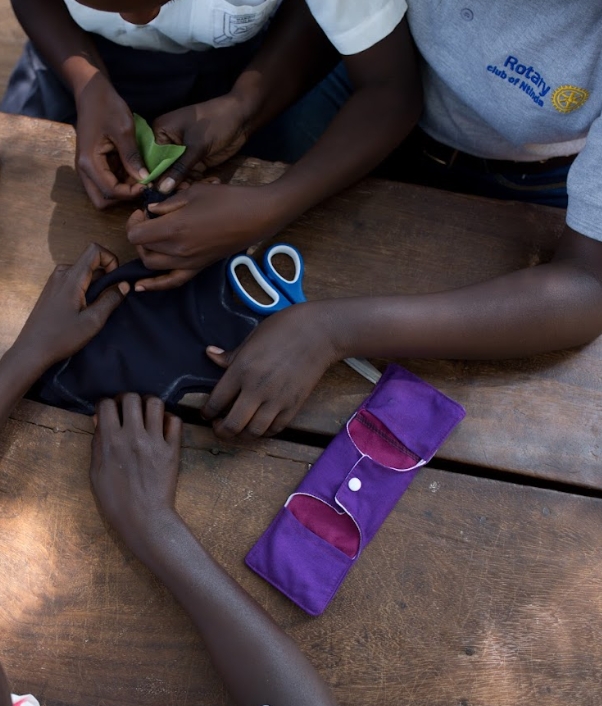
The group's initial focus on Menstrual Health & Hygiene culminated in the official approval of the Rotary Action Group for Menstrual Health & Hygiene (RAGMHH) on March 4, 2021. RAGMHH has since expanded to a global network of over 500 active members, dedicated to collaborating with Rotary clubs and districts to raise awareness, implement impactful projects, and dismantle the social stigmas surrounding menstruation.
Key objectives are to elevate public understanding of period poverty, foster open dialogue to challenge male-centric taboos, and promote the adoption of environmentally sustainable, reusable, and cost-effective menstrual products. It is now widely recognized that Menstrual Health Management (MHM) constitutes a significant global public health challenge, with girls with special needs and disabilities facing disproportionately limited access to adequate menstrual hygiene facilities.
Sharmila Gopalan emphasizes the importance of early education on menstruation for both boys and
girls, both at home and in school, to cultivate healthy habits and normalize this natural biological process.
For Rotary clubs seeking to implement MHM projects, RAGMHH advocates for sustainable initiatives grounded in thorough needs assessments and measurable outcomes. The Action Group provides advisory and guidance services, ensuring all activities are conducted in compliance with Rotary International policies.
We are inviting members to join us. Here’s the membership link and QR Code for payments and donations. Below is the membership cost. When one joins our membership, this will be valid from now till the next Rotary renewal date July 2026 or July 2028 depended on the membership option.
1 yr Rotaract Membership USD 5

1 yr Rotarian or non-Rotarian Membership USD 15
1 yr corporate Membership USD 50
3 yrs Rotaract Membership USD 12
3 yrs Rotarian or non-Rotarian Membership USD 40
3 Year Corporate Membership USD 120
Subscribe to Our WASH Newsletter
Subscribe to our eBulletin and stay up to date on the latest news and events.
VIEW MORE STORIES & NEWS
Looking for help on an active or potential project?
Need a partner, money, or support?
CLICK HERE
to review projects or to submit a project.
WASH Rotary Action Group and World Water Summit
gratefully acknowledges the support of our sponsors:
World Water Day
March 22

Menstrual Hygiene Day
May 28
Global Hand Washing Day
October 15

World Polio Day
October 24
World Toilet Day
November 19
Sign-Up for Our Newsletter
Get news from WASH Rotary Action Group to your inbox.
By submitting this form, you are consenting to receive marketing emails from: WASH Rotary Action Group, 5344 SE 67th Ave, Okeechobee, FL, 34974, US, https://wash-rag.org/. You can revoke your consent to receive emails at any time by using the Unsubscribe link, found at the bottom of every email. Emails are serviced by iMembers.




